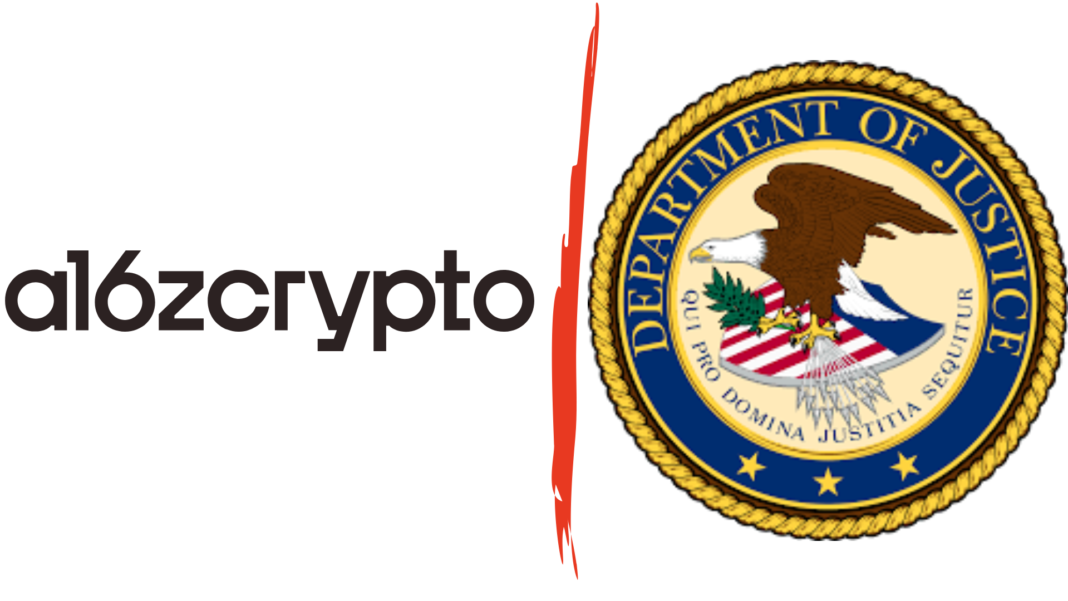Venture capital firm Andreessen Horowitz (a16z) has taken a strong stance against the U.S. Department of Justice (DOJ) over what it deems unfair regulatory enforcement against DeFi protocols.
In a recently published article, a16z argues that developers of decentralized finance (DeFi) software should not be held liable for illegal activities carried out by third-party users.
The firm warns that holding developers accountable for how their neutral, open-source technology is used sets a dangerous legal precedent that could stifle innovation in the crypto industry.
A16z believes that such regulatory overreach discourages developers from creating decentralized financial systems, fearing legal consequences for actions beyond their control.
The Need to Clearly Define ‘Control’ in Crypto Regulation
As the U.S. has entered a new presidential administration in 2025, a16z urges lawmakers to prioritize the legal definition of “control” in digital asset regulation.
The firm argues that the DOJ currently applies outdated laws to DeFi, treating decentralized protocols as unlicensed money transmitters under Section 1960 of U.S. law.
The misinterpretation, according to a16z, could subject blockchain developers to severe legal penalties, including fines of up to $250,000 and up to five years in prison.
The venture firm insists that clearer legal distinctions between software development and financial custody are needed to prevent wrongful prosecution of innovators working on blockchain-based technologies.
Also Read: DOJ Seeks Leniency For Ex-FTX Exec Nishad Singh Over “Substantial” Cooperation
DOJ’s Expanding Crackdown on Blockchain Developers
The DOJ has already begun prosecuting blockchain developers under its broad interpretation of money transmission laws.
Two recent cases, United States v. Storm and United States v. Rodriguez, highlight the government’s intent to apply Section 1960 to individuals developing blockchain-related software.
A16z compares this to holding car manufacturers responsible for accidents caused by reckless drivers.
The firm argues that blockchain developers create neutral technology and should not be criminally liable for how users interact with it.
If this approach continues, a16z warns, it could cripple the broader blockchain ecosystem by deterring talent and investment in the space.
Wider Implications for DeFi and the Cryptocurrency Market
A16z’s opposition to the DOJ’s stance is particularly significant given its extensive investments in over 100 crypto-related companies, including Uniswap, one of the largest decentralized exchanges.
If regulatory authorities maintain their broad interpretation of money transmission laws, many of these projects could face similar legal threats.
The ongoing DOJ crackdowns reflect wider regulatory pressure on the crypto industry, as seen in other major cases.
For instance, venture firm Paradigm recently committed $1.25 million to support Tornado Cash developer Roman Storm’s legal defense against DOJ charges.
Meanwhile, the DOJ has also moved forward with a historic $6.5 billion Bitcoin sale from the Silk Road case, sparking concerns about potential market disruption.
As regulatory battles intensify, the crypto industry faces an urgent need for legal clarity to ensure innovation is not stifled by ambiguous or outdated laws.
Also Read: Early Bitcoin Investor Sentenced To Two Year Prison For Crypto Tax Evasion By U.S. DoJ


